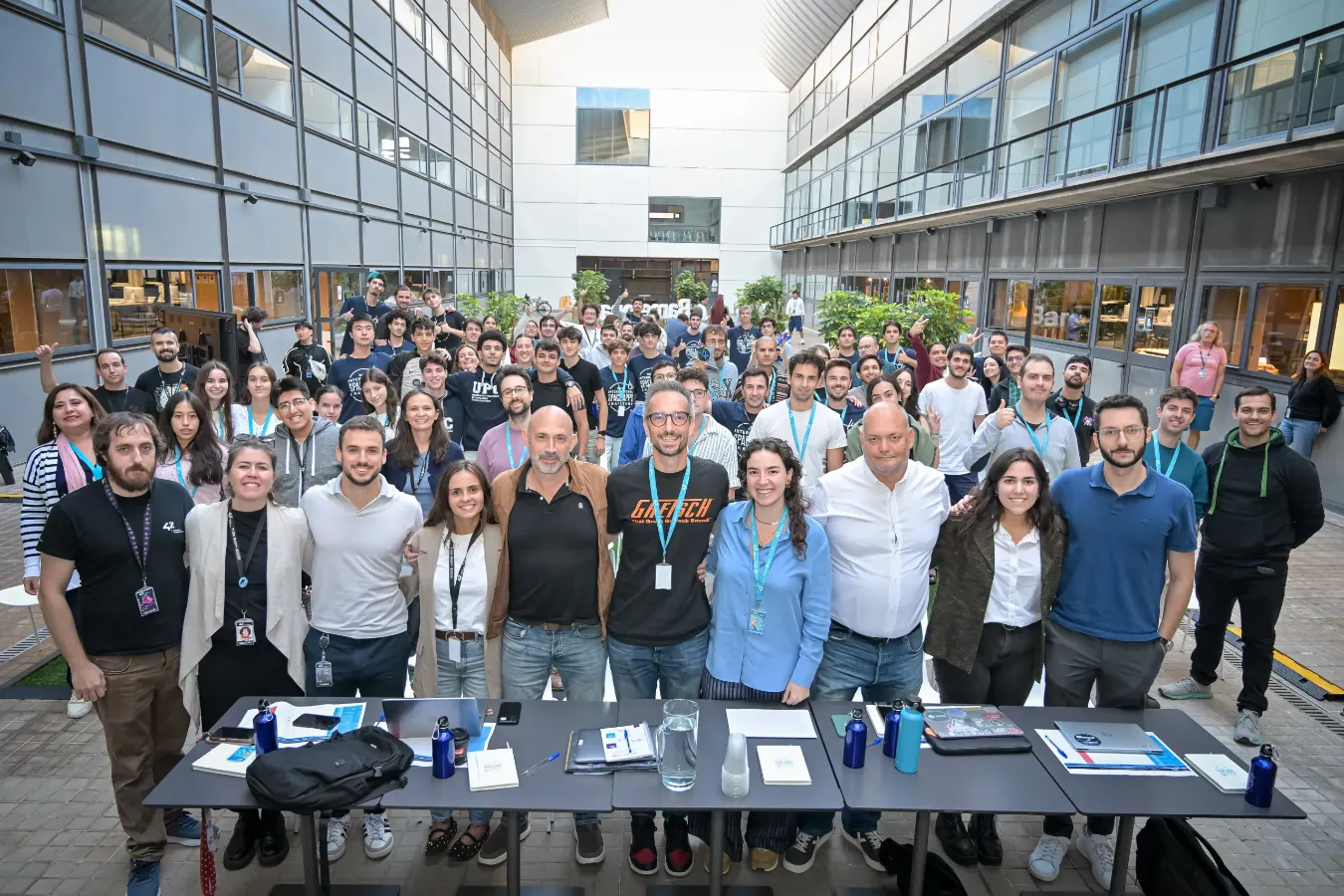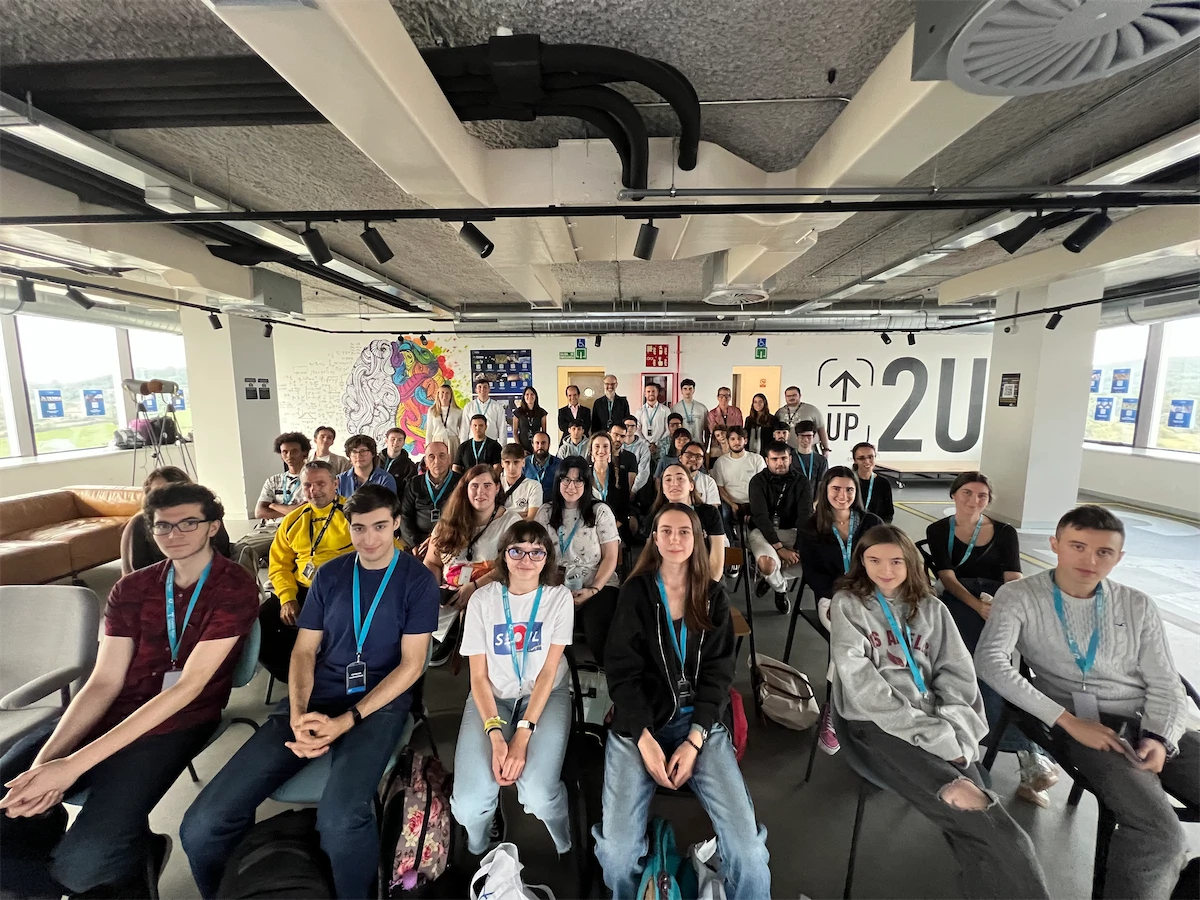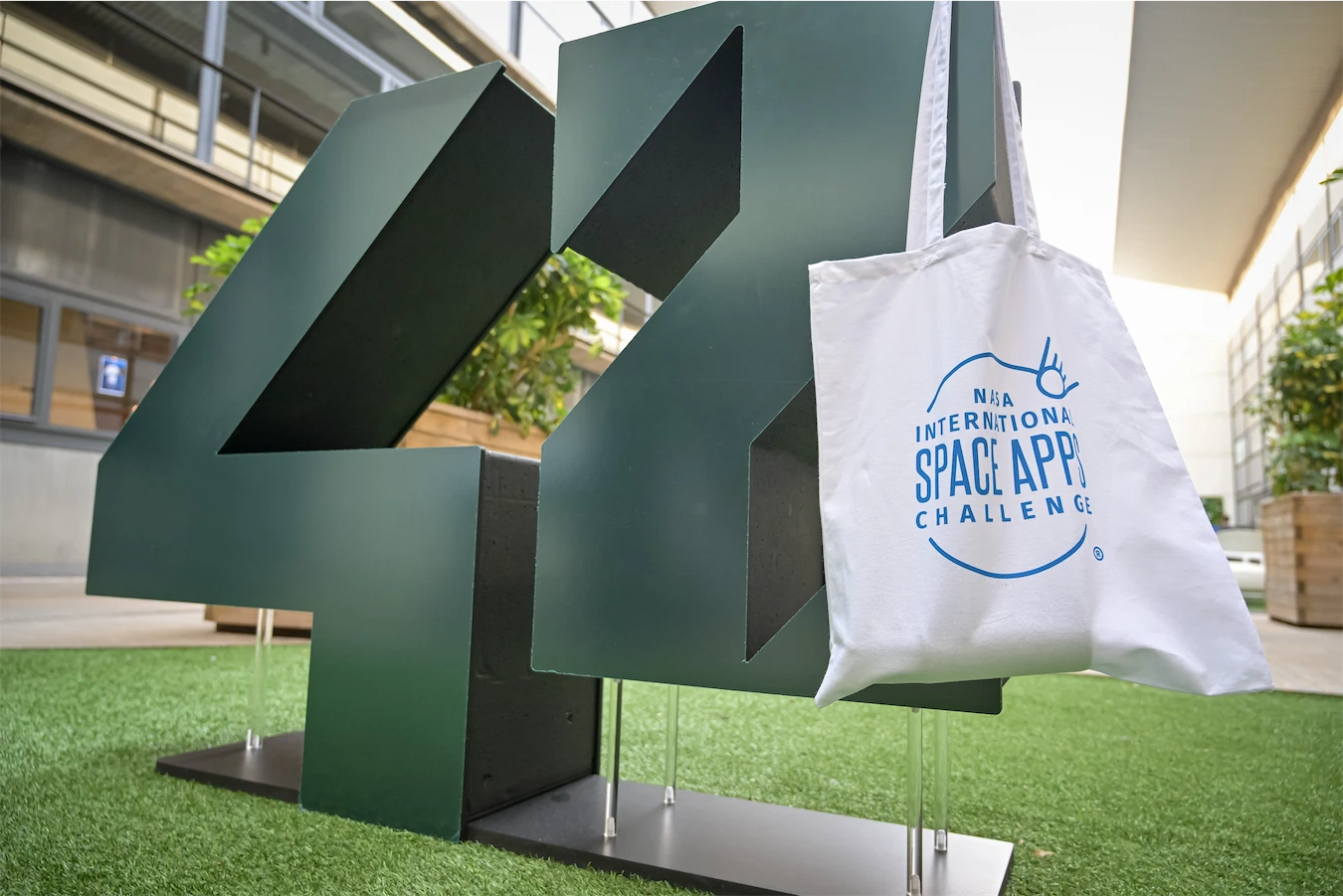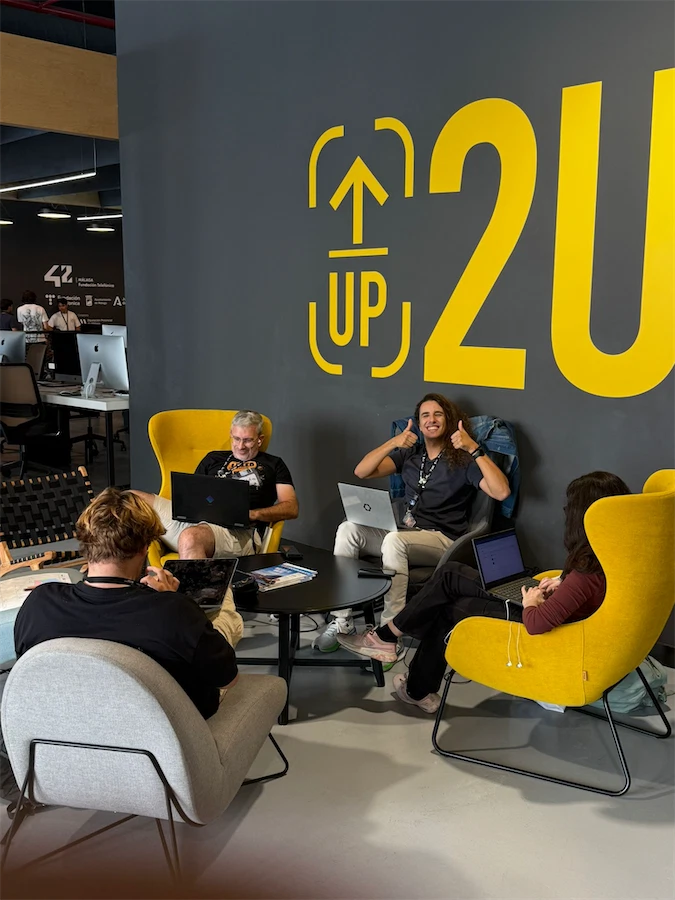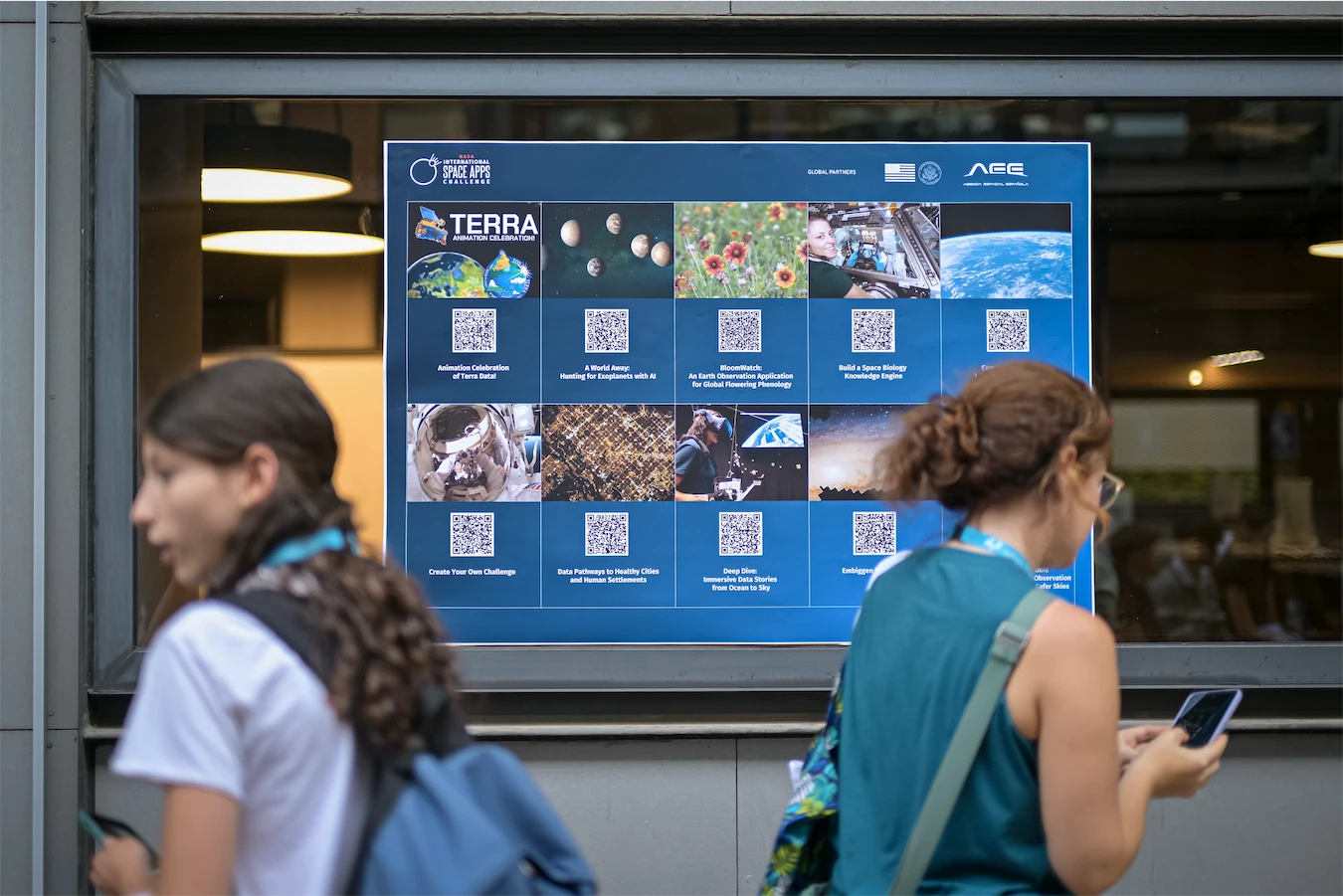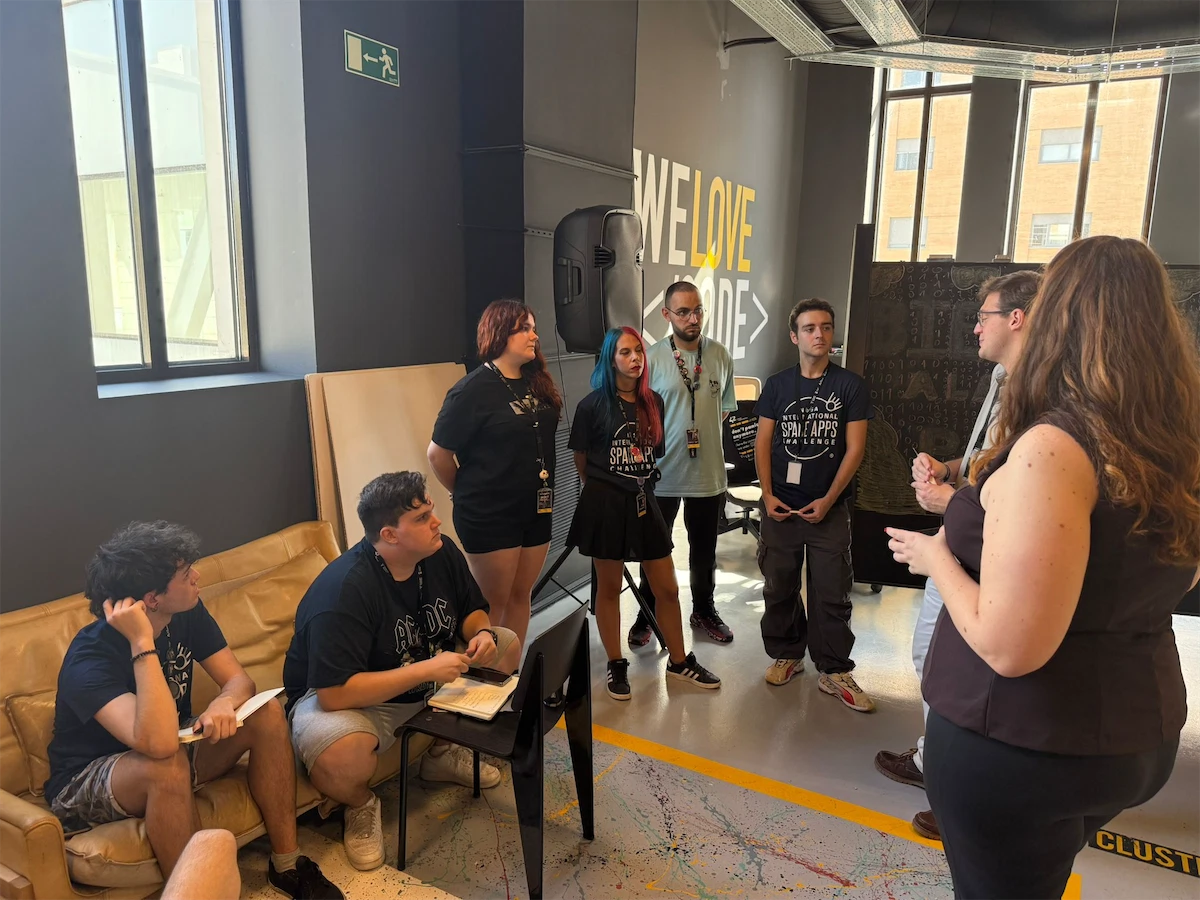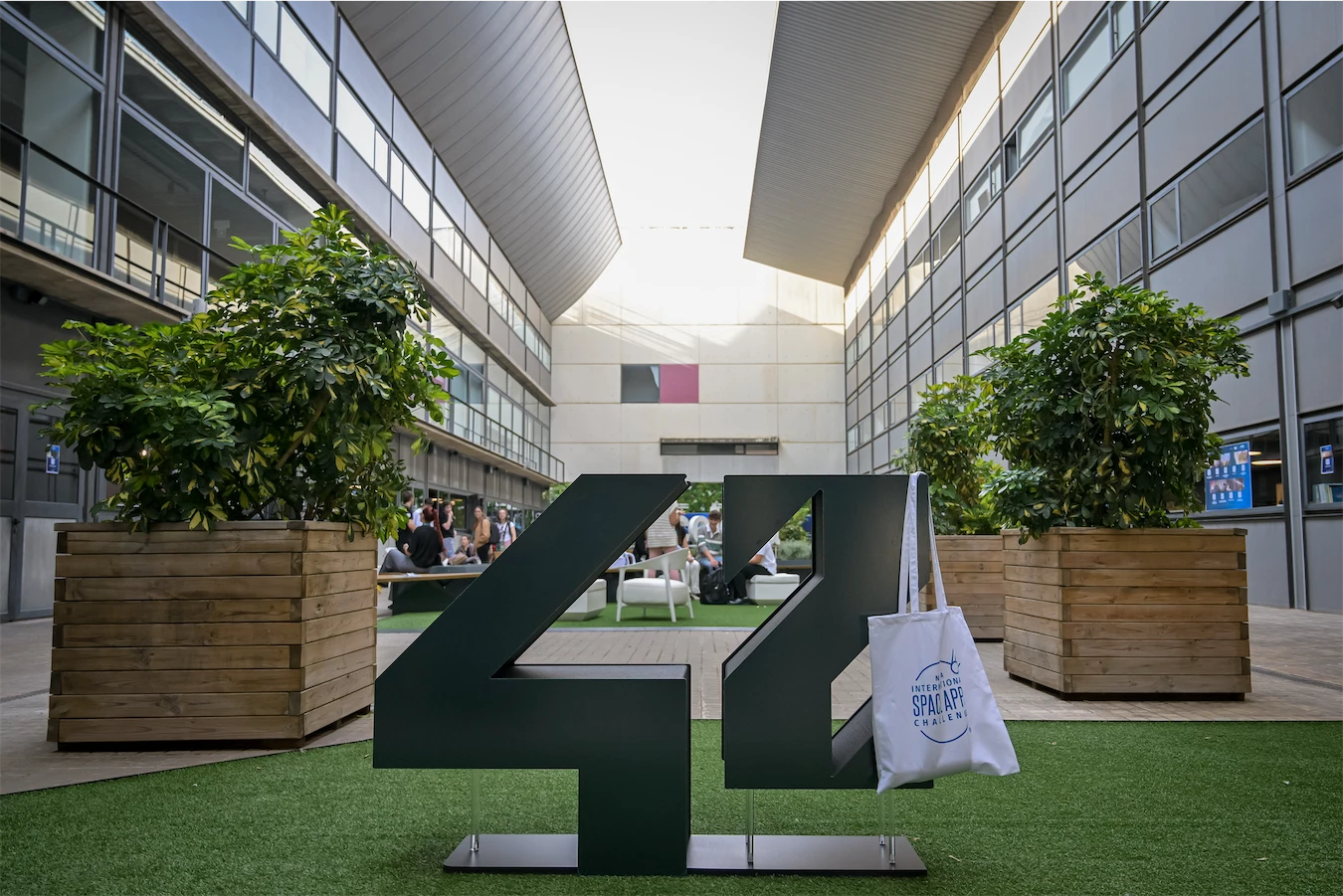09.10.2025
The largest STEAM hackathon in the universe breaks participation record in Spain
Sharkitects, the winner team
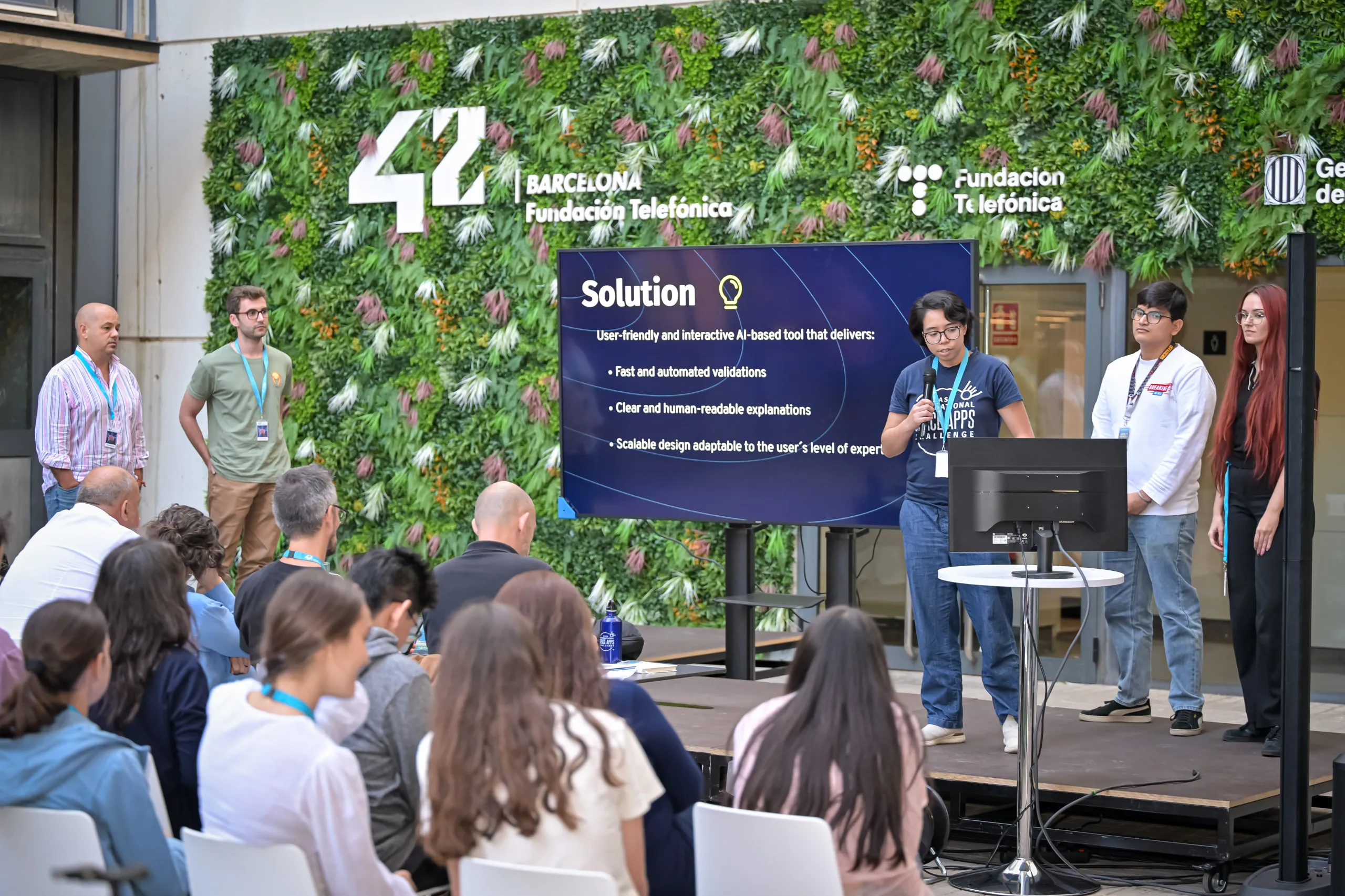
The 2025 edition of this international event in Spain brought together nearly 800 participants, a record number that placed our country at the top of Europe in terms of representation.
For 48 hours, and simultaneously in other international cities, teams worked on developing creative and real-world solutions to problems posed by NASA scientists and engineers.
For yet another year, this was the third, our 42 programming campuses in Barcelona, Malaga, and Urduliz (Bizkaia) hosted the largest technological hackathon in the universe. Between them, more than 300 people took on the 19 challenges launched by NASA in multidisciplinary teams. Some of them were made up of students from our campuses, along with students pursuing university degrees in science and technology or other professional profiles specializing in different disciplines.
Sharkitects, the winning team from Barcelona
This year’s winning team in Barcelona was Sharkitects, which included a student from the 42 Barcelona Telefónica Foundation. They presented a project that uses NASA satellite data to create a mathematical method to identify sharks and predict their feeding grounds. Furthermore, the winners proposed a new type of electronic tag that not only records the location of sharks but also what they eat, sending this information in real time to improve the conservation and study of these species. This team will also participate in the international phase of the competition, where they will compete against finalist teams from more than 150 countries and 50,000 participants. They will have the final opportunity to travel to the Kennedy Space Center in Cape Canaveral (USA) to present their ideas to NASA experts.
This year’s winning team in Barcelona was Sharkitects, which included a student from the 42 Barcelona Telefónica Foundation. They presented a project that uses NASA satellite data to create a mathematical method to identify sharks and predict their feeding locations. The winners also proposed a new type of electronic tag that not only records the location of sharks but also what they eat, sending this information in real time to improve the conservation and study of these species.
This team will also participate in the international phase of the competition, where they will compete against finalist teams from more than 150 countries and 50,000 participants.
This year’s winning team in Barcelona was Sharkitects, which included a student from the 42 Barcelona Telefónica Foundation
